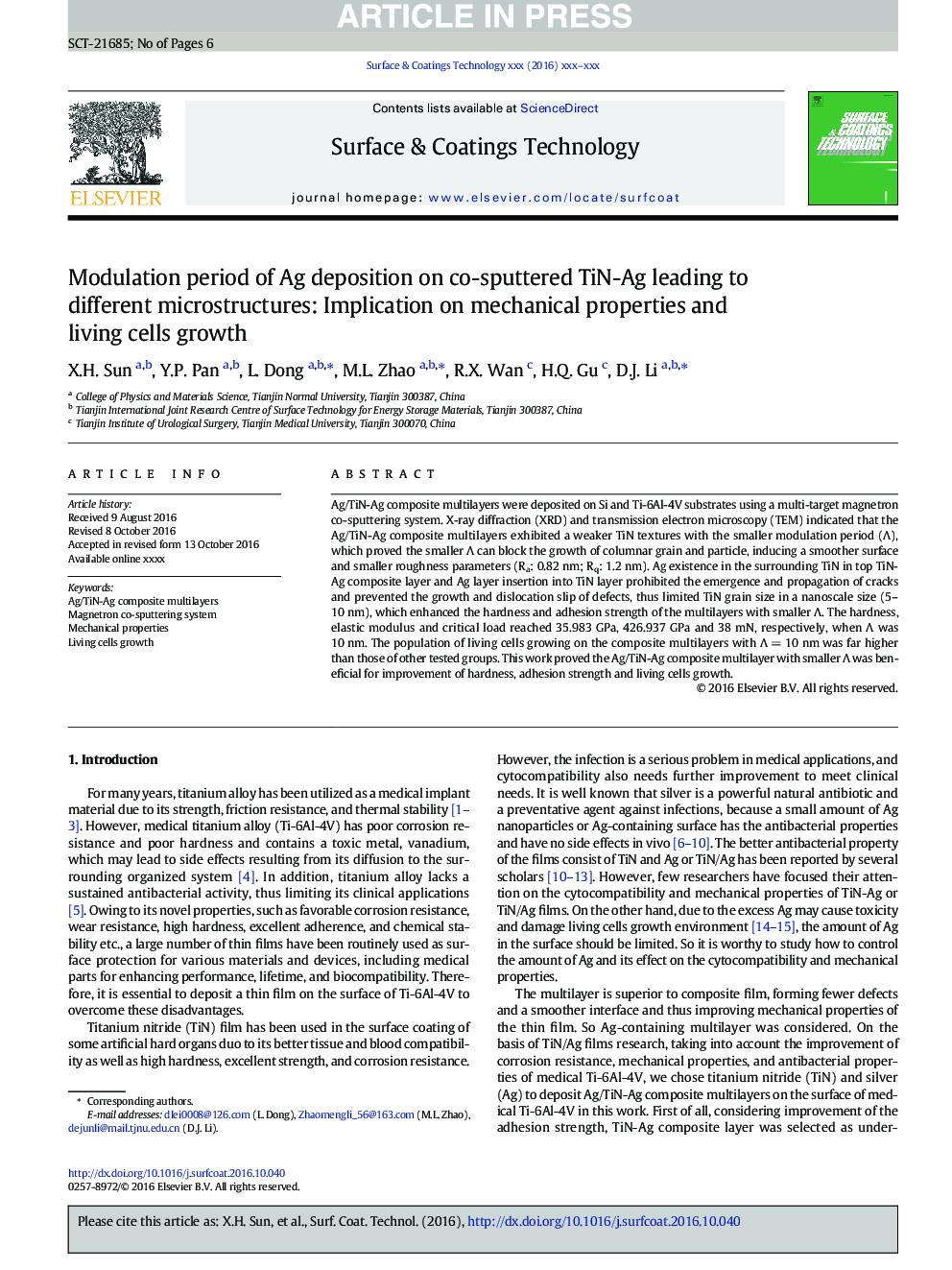| کد مقاله | کد نشریه | سال انتشار | مقاله انگلیسی | نسخه تمام متن |
|---|---|---|---|---|
| 5464608 | 1398856 | 2017 | 6 صفحه PDF | دانلود رایگان |
عنوان انگلیسی مقاله ISI
Modulation period of Ag deposition on co-sputtered TiN-Ag leading to different microstructures: Implication on mechanical properties and living cells growth
دانلود مقاله + سفارش ترجمه
دانلود مقاله ISI انگلیسی
رایگان برای ایرانیان
کلمات کلیدی
موضوعات مرتبط
مهندسی و علوم پایه
مهندسی مواد
فناوری نانو (نانو تکنولوژی)
پیش نمایش صفحه اول مقاله

چکیده انگلیسی
Ag/TiN-Ag composite multilayers were deposited on Si and Ti-6Al-4V substrates using a multi-target magnetron co-sputtering system. X-ray diffraction (XRD) and transmission electron microscopy (TEM) indicated that the Ag/TiN-Ag composite multilayers exhibited a weaker TiN textures with the smaller modulation period (Î), which proved the smaller Î can block the growth of columnar grain and particle, inducing a smoother surface and smaller roughness parameters (Ra: 0.82Â nm; Rq: 1.2Â nm). Ag existence in the surrounding TiN in top TiN-Ag composite layer and Ag layer insertion into TiN layer prohibited the emergence and propagation of cracks and prevented the growth and dislocation slip of defects, thus limited TiN grain size in a nanoscale size (5-10Â nm), which enhanced the hardness and adhesion strength of the multilayers with smaller Î. The hardness, elastic modulus and critical load reached 35.983Â GPa, 426.937Â GPa and 38Â mN, respectively, when Î was 10Â nm. The population of living cells growing on the composite multilayers with ÎÂ =Â 10Â nm was far higher than those of other tested groups. This work proved the Ag/TiN-Ag composite multilayer with smaller Î was beneficial for improvement of hardness, adhesion strength and living cells growth.
ناشر
Database: Elsevier - ScienceDirect (ساینس دایرکت)
Journal: Surface and Coatings Technology - Volume 326, Part B, 15 October 2017, Pages 382-387
Journal: Surface and Coatings Technology - Volume 326, Part B, 15 October 2017, Pages 382-387
نویسندگان
X.H. Sun, Y.P. Pan, L. Dong, M.L. Zhao, R.X. Wan, H.Q. Gu, D.J. Li,